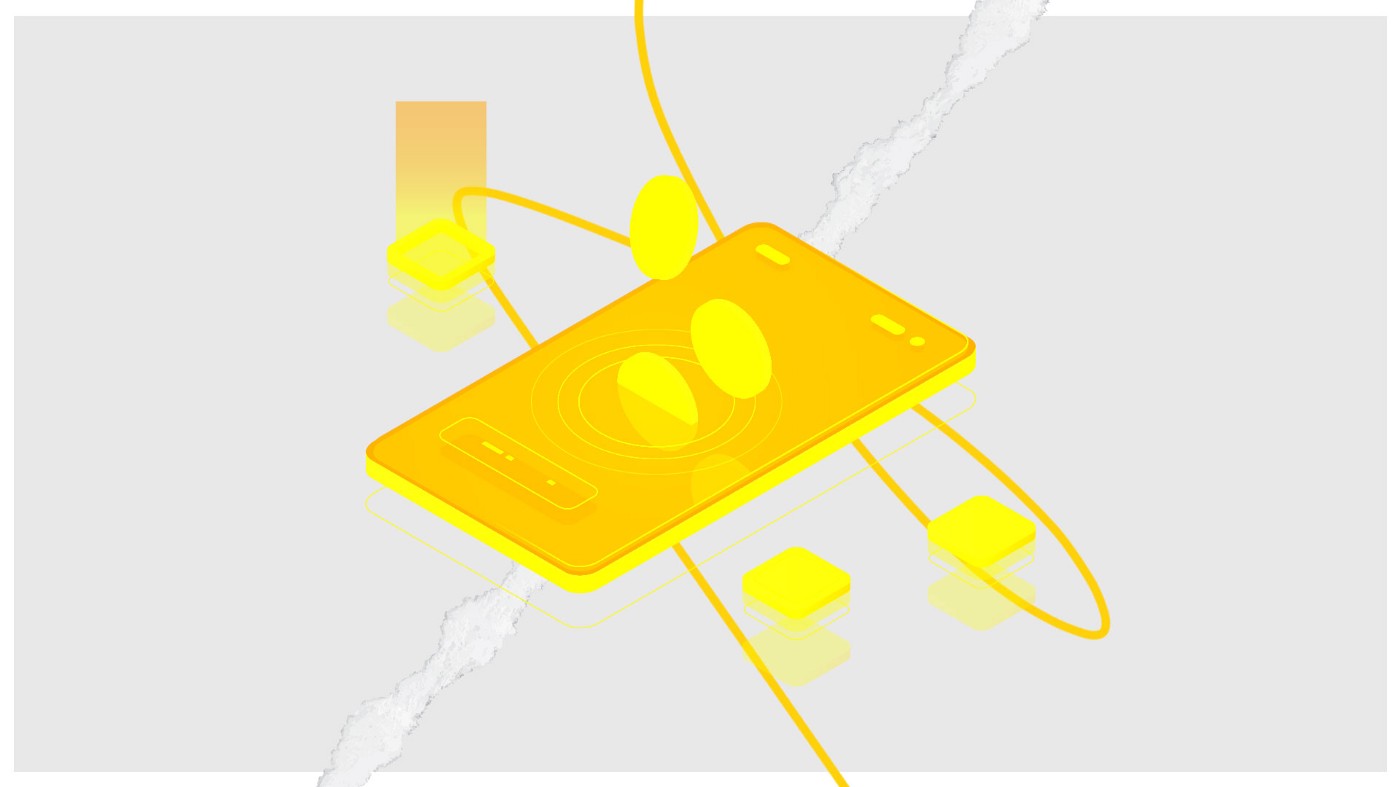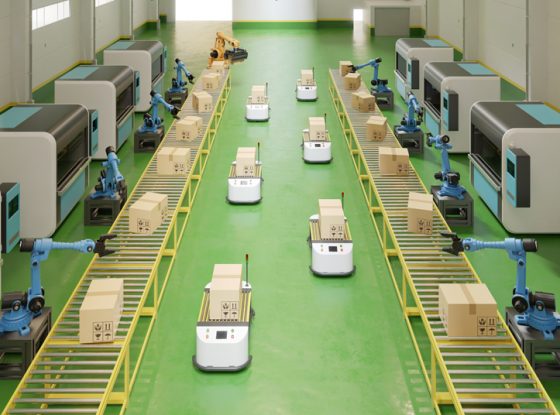8 applications of blockchain technology for businesses in 2022

Blockchain is one of the most exciting (and, arguably, least understood) technologies on the scene in 2022. But its buzz for blockchain more than makes up for the questions business owners have around it — and now, organizations everywhere want to stake their claim with their own innovative solution.
If you know you want to invest in blockchain development, but you don’t know how (or why!) to go about it, then this post is for you.
We’ll be covering eight applications of blockchain technology for business so that your organization can put it to work in a meaningful way.
8 inspiring applications of blockchain technology to consider in your business
1. Smart contracts
First on our list of blockchain development solutions is smart contracts. Smart contracts are essentially automated contracts written in code rather than on paper.
Say an enterprise agrees to buy a product from your business for $100,000. Rather than making this deal over the telephone, Zoom, or through a bunch of emails and signatures, you can create a simple smart contract instead. This contract is a bit of code in the blockchain that will automatically approve the purchase of the product when the enterprise sends over the money. It executes the contract for your business.
Why is this use of blockchain technology exciting for business?
Of course, this is just one use case for a smart contract. The same technology can be used to hire new employees, secure clients, merge and acquire, and a plethora of other activities. Because it’s automated, there’s less room for error and less oversight required.
By using smart contracts, businesses can benefit from increased transparency, faster negotiations, and automated transactions. There’s no need for external parties to execute or secure the contract since the contract itself handles this. This allows involved parties to be more confident in the success and management of the contract.
2. Decentralized apps
Next are decentralized products, namely apps. Sometimes called “dApps”, a decentralized app works just like a standard app you use every day on your phone or computer. However, unlike these other apps, there is no one managing your data, account, or orders on the other end.
Instead, the blockchain is handling all of this. It’s storing and updating user accounts and processing transactions (financial as well as general interactions) for the users.
Typically, you would need an intermediary to do all of this. That intermediary is usually the developer, who has to maintain a database after launching an app. Since decentralized blockchain solutions are self-sustaining, there’s no longer a need for the intermediary party. This keeps things simple, secure, and private for the individual.
Why is this use of blockchain technology exciting for business?
For smaller developers and businesses, or for those who have developed more apps than they can manage, a decentralized solution presents a long-term management option. You don’t need to be as involved in the day-to-day responsibilities of taking care of your app. At most, you just need a customer support team.
Additionally, privacy-centric companies (which is quickly becoming all companies in 2022) can advertise decentralized solutions as a privacy-first mechanism. It decreases the involvement the developer has in the users’ data and gives the user more control over their data and how it’s used.
3. Increased transparency and traceability
Increasing transparency and traceability is a more broad application of blockchain technology for business, but it’s still worth mentioning. As the amount of data companies are taking in, transforming, and outputting increases exponentially, these are two features that are becoming more and more important.
On the transparency front, blockchain development can be used to provide everyone with a clear view of how data is used within your company. They can either view just their data or everyone’s, depending on how transparent you want to be. They can see how this data is accessed, modified, and implemented throughout your systems.
Similarly, all of these features of blockchain can be used to improve traceability. You can cut down on fraud, track it down when it happens, and avoid lost or corrupt data.
Why is this use of blockchain technology exciting for business?
As mentioned before, privacy-first policies are becoming critical to your public perception. Individuals are becoming more educated and concerned with how their data is collected and used.
In a way, it’s fitting that this rise in awareness is coinciding with the rise in blockchain’s popularity. Blockchain is the perfect tool for removing the blackbox nature of your business’s data policies and practices, boosting consumer trust, and improving your internal data procedures.
4. Employee compensation
Employee compensation is a very pragmatic use case for blockchain technology. It leverages something blockchain is already good at (processing financial transactions) and applies it to a real-world need for businesses.
And of course, just because the blockchain is primarily used to process cryptocurrency transactions, that doesn’t mean you’ll need to start paying your employees in Bitcoin. With “smart” blockchains like Ethereum, you can create your own apps on the blockchain that process any kind of transactions you like.
This can provide you with a faster, more transparent, and more flexible way to pay your employees every period.
Why is this use of blockchain technology exciting for business?
While putting your employees on a blockchain payroll might seem redundant (“But… I already have a payroll system in place…?”) it offers a few unique benefits.
First, it allows you to pay employees in cryptocurrency if that’s something they’re interested in. It can also make it easier to pay customers in a fiat currency of their choosing (Stellar is particularly good at this).
And second, with contractors, freelancers, and remote workers becoming more commonplace, a blockchain payroll can standardize and secure the way these workers are paid. This gives everyone more confidence in your payroll system while keeping things simple, too.
5. Securing digital identities
For the most part, the way we keep up with our identification is pretty outdated. Whether we’re talking about hospital records, government IDs, or just the badge you wear to work, there’s a lot of room for improvement with our IDs.
Fortunately, blockchain development can help here, too. Businesses can store digital identities in the blockchain and access them from there across a variety of services and products. This is opposed to the more traditional solution of a database, which can become cluttered, slow, costly to maintain, and difficult to keep in sync.
Not to mention that, eventually, the blockchain can be used to make our digital identities universal. You’ll have just one account that connects your information to any platform, business, or service you sign up for.
Why is this use of blockchain technology exciting for business?
The largest benefit of applying blockchain to digital identities is convenience. It serves to make things as simple as possible, both for the user and for you, the business.
And in more security-driven applications like healthcare and finance (or anything where an account is used for more than accessing digital goods and services), the blockchain creates a more transparent, traceable, and secure solution.
6. More trustworthy voting processes
Thanks to the Greeks, we’ve all (mostly) agreed that voting is pretty great. The problem is, we haven’t really updated the way we vote since the time of the Greeks. Much of our voting is still conducted on pen and paper, and even when it is digitized, concerns of fraud and error are high.
This is as true of government voting as it is for voting within a business context, whether that be a board of directors coming to a conclusion or a workers-based decision.
Blockchain can help you modernize voting in a way that is fast, convenient, and most importantly, trustworthy. You can ensure that every vote is authentic, immutable, and incontrovertible.
Why is this use of blockchain technology exciting for business?
Ensuring that a voting process is legitimate is critical no matter the context. However, this can sometimes come into conflict with our more modern need to have voting also be convenient and easily accessible.
Blockchain can bridge this gap for your workplace. It can give a voice to various stakeholders throughout your company via a channel that they can trust and access at their convenience.
7. Transportation and logistics
The transportation and logistics sector is becoming increasingly automated and digitized. This has the benefit of making it more cost-effective, sustainable, efficient, and safe for workers.
It also comes with the drawback of data vulnerability. The more communication that occurs between vehicles and management systems, the more chance there is for vital data to be corrupted or stolen.
By implementing blockchain technology, businesses can mitigate these drawbacks. They can secure the data that’s being moved, prevent it from being altered without oversight, and generally create a safer digitization process for their transportation and logistics departments.
Why is this use of blockchain technology exciting for business?
The benefits of blockchain development within logistics go beyond keeping data safe. It can also be used to improve freight tracking, which grows increasingly important to consumers and businesses alike.
8. Give users control of their data
We’ve mentioned it a few times throughout this post in other points, though it’s potent enough to garner its own position on this list: blockchain development has the power to give individuals control over their data.
Currently, when you use an app or digital service, you take for granted that the business owns your data. Purchasing digital media, adding your sign-in information, and keeping a digital record of your usage — each of these things is left to the developer/business behind the software.
With blockchain, you can put data back in the hands of the user. Not only can they get a better view of what data is being stored on them and how it’s being used, but you can also give them options and features tied to manipulating that data. Since no one needs to manage a blockchain, you can introduce anonymity into your service more easily.
Why is this use of blockchain technology exciting for business?
The data of individuals is becoming a hot-button issue around the world. Users are more educated and aware of their digital footprints than ever before, and increasingly they’re asking for control over this data.
Blockchain development can put users back in control without minimizing or removing the abilities of the developer. It’s a win-win solution and one that could become a new default in the future.
How does the blockchain app development process work?
The blockchain development process is not too unlike that of traditional software development. It involves building the back-end, then the front-end, designing the UI, deploying it on various platforms, and finally testing it for quality assurance.
This can take anywhere from a few weeks to a few months and, due to the complexity of blockchain technology, is best left to experienced developers. Of course, businesses don’t have to build a blockchain solution from scratch. They can lean on existing solutions like Ethereum and Stellar, which already have frameworks in place.
How much does it cost to build a blockchain app?
Generally, it will cost anywhere between $20,000 and $200,00 to develop an original blockchain system. This includes the cost of hiring developers or outsourcing to a development agency.
If businesses instead choose to create blockchain apps on existing systems, like Ethereum, then the cost can be much lower as this is far simpler to do.
Can you build your own blockchain?
Of course! Nothing is preventing any business from creating its own blockchain aside from expertise. Generally speaking, there’s no reason to create a blockchain if an ideal solution already exists. This is kind of like developing a programming language when all you need is an app.
That said, building your own blockchain can be valuable if there isn’t an ideal solution available. For instance, Ethereum, which is perhaps the most popular blockchain for app development, can be slow to run due to its popularity. Others have environmental concerns, are bloated, too broad or narrow in usage, or can be otherwise less than ideal. In these cases, it can make sense to create a new blockchain from scratch for your business.
Blockchain development isn’t out of reach
Developing blockchain technology for business use cases isn’t a pipe dream anymore.
Businesses of all shapes, sizes, and sectors can start putting this technology to work today to achieve any of the applications in this article and beyond.
To discuss opportunities for blockchain development within your business and how you can get started, reach out and let our blockchain development engineers at RebelDot support you as close consultants in developing and launching your digital product idea.
Source : medium.com



